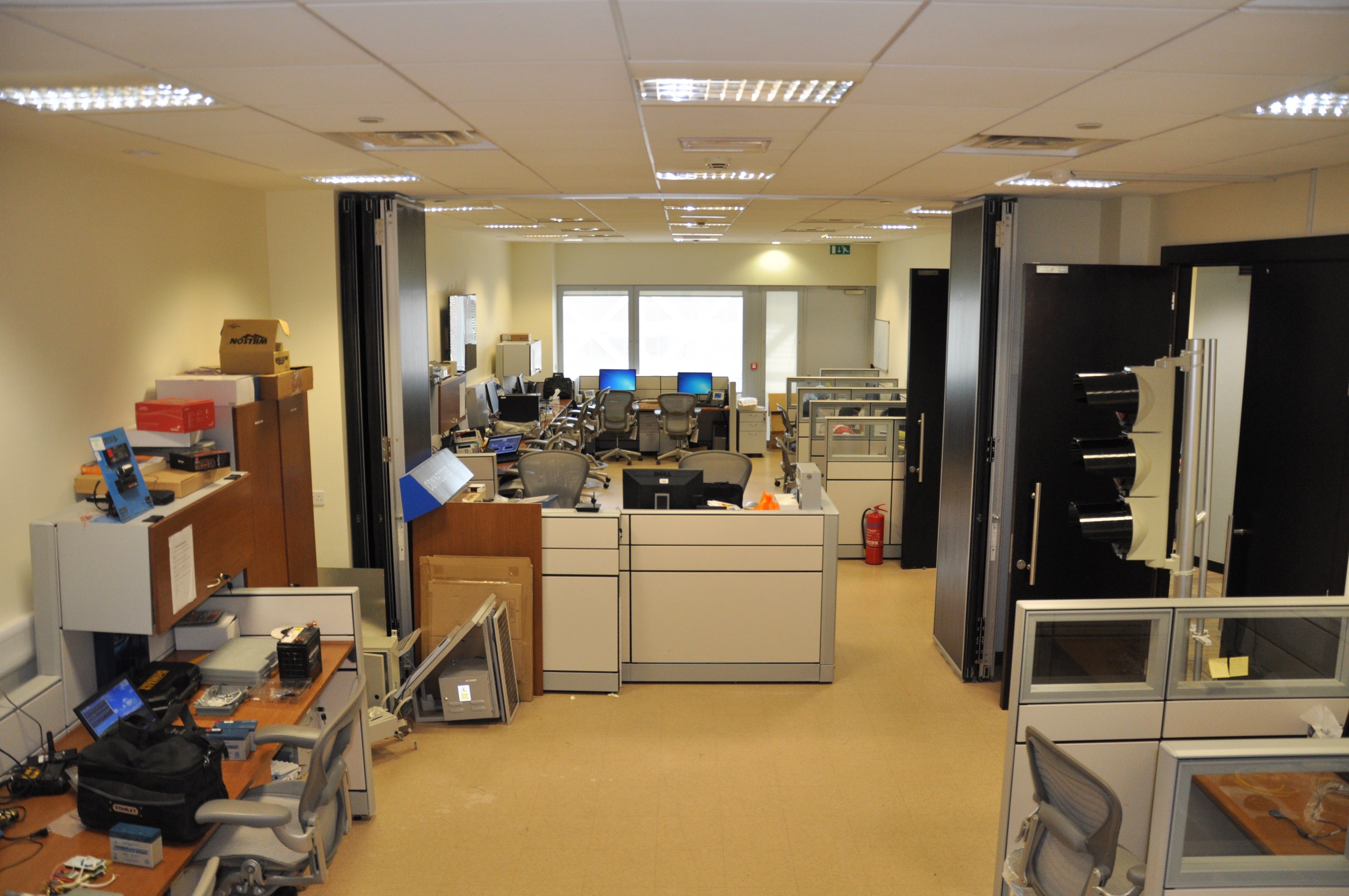Qatar Ushers In The IoT Era: R&D Center QMIC Leads Region's Smart Mobility Research Operating from Qatar's technology hub Qatar Science and Technology Park (QSTP), QMIC with its team of 75 innovators has gone beyond merely incorporating IoT in its vision statement, and has delivered tangible results, making it a regional market leader.
Opinions expressed by Entrepreneur contributors are their own.
You're reading Entrepreneur Middle East, an international franchise of Entrepreneur Media.

Even before it was considered fashionable (and good business sense) to capitalize on the buzz about the Internet of Things (IoT), Qatar Mobility Innovations Centre (QMIC) set up shop in the country in 2009, with an aim to alter the technology innovations space in GCC. Founded at a time when IoT as a term was hardly recognized, QMIC, a mobility systems-oriented R&D center built as a partnership between Qatar University and Qatar Foundation, focused on using sensing technologies (sensors) to collect and derive insights from data, and take innovations from being a theoretical or scientific concept to a marketable business proposition.
"We are proud of the fact that since its inception, QMIC's activities have been all about IoT. It is probably safe to state that QMIC is one of the oldest IoT startups in the whole region," says Dr. Adnan Abu-Dayya, Executive Director (CEO), QMIC. Operating from Qatar's technology hub Qatar Science and Technology Park (QSTP), QMIC with its team of 75 innovators has gone beyond merely incorporating IoT in its vision statement, and has delivered tangible results, making it a regional market leader. The organization counts four successfully commercialized "smart systems" to its name, tools that are solving key issues in transport, environment and road safety sectors. Masarak (meaning "Your Path" in Arabic), a platform providing integrated services for intelligent transport, telematics and smart logistics, was followed by Hawa'ak ("Your Air"), an environment monitoring solution delivering information on air quality and weather. Then came Salamtek ("Your Safety"), an application that tackles the grave issue of road safety in the region, by curbing distracted driving behavior and offering basic telematics services. QMIC developed all these systems using distributed sensing technology, a concept that is still developing in this part of the world.
With this expertise and experience to lean on, in March 2016, QMIC launched its first locally developed IoT platform, Labeeb IoT. Labeeb ("Intelligent"), a product of a year of QMIC's core efforts, is a platform that facilitates communication between devices, and translates data into actionable insights for industries such as oil & gas, healthcare, utilities, etc. to deliver services. According to Abu-Dayya, the idea behind Labeeb is to enable entrepreneurs, researchers and others, realize the business potential of IoT and create local digital businesses in the process. Besides making it economical for startups to deploy IoT-based solutions, Labeeb also wants to create and grow a community of developers and adopters in the region, by providing SDKs (software development kits). With 20 years of global experience in wireless, telecom R&D and related areas, and seven issued patents, Abu-Dayya is in agreement with industry's positive outlook for IoT and sees significant potential for it in the region, more so, with the Smart City vision of the region's policymakers. That is also a reason why QMIC plans to make significant enhancements and features to Labeeb throughout 2016. This, however, hasn't dissuaded interest from the market.

According to QMIC, interest and enquiries from startups, tech entrepreneurs and corporates have been pouring in since Labeeb's launch, and the center is reaching out to the community through incubation organizations, local universities and research centers in Qatar. The R&D house claims that a number of startups in and outside Qatar have started using the current version of Labeeb and QMIC's plan is to initially focus on entrepreneurs, university students, research centers etc. and then look towards industries like utilities, smart cities, and healthcare, among others.
Owing to the very nature of all their smart solutions, QMIC has come to be a key partner of the Qatar Government and various industrial houses of the nation in their endeavor to make public infrastructure smarter and technologically advanced. While Qatar Rail partnered with QMIC back in 2014 for the Masarak platform for traffic monitoring and logistics management to support its mega projects, Qatar's Supreme Committee chose the Hawa'ak system for deployment at number of proposed venues for upcoming FIFA World Cup in Qatar. QMIC also formed a Consortium for Salamtek, which includes key organizations such as the Ministry of Municipality and Urban Planning, Traffic Directorate of the Ministry of Interior, Ooredoo Qatar, Qatar Insurance Company, Vodafone Qatar and others, to speed the development of such solutions. In support of Qatar's Road Safety strategy, QMIC also announced a digital strategy for road safety, presenting its range of solutions to reduce fatalities due to road mishaps in the country.
Related: QBIC Is Creating The Next Generation Of Qatari Business Leaders

Without denying the transformative nature of IoT and other mobility technologies, QMIC's Abu-Dayya shifts focus on the roadblocks that need to be cleared to create a business value out of the technologies. "Have solutions and services optimized for local user needs; understand the business value and potential return on investment; optimize the user experience; establish the right partnership and delivery model; and most importantly, have the local know-how and expertise to cope with a rapidly evolving field," he asserts. For him, GCC figures as the most suitable area in MENA for development and deployment of IoT, supported by a developing infrastructure and emergence of mega projects that rely on digital systems. With regard to nuances of running a tech business, Abu-Dayya believes that his understanding of entrepreneurship stands confirmed with QMIC's journey. A primary requirement, he says, is to strike a balance between developing a marketable solution and building partnerships in the process. "Technology-based businesses require scale, speed and know-how. Lacking any of these three will most likely limit the value and impact any technologybased venture," he adds. He also cites availability of funding, as a major barrier for entrepreneurs in the region, especially in the early-stage. "Although there has been progress in the last few years, I believe key elements of the ecosystem, especially the locally established technology companies who can act as an exit channel for local entrepreneurs and a strong VC industry, are either weak or missing." As for QMIC, the center has kept the research work going on its own revenues (save a few research grants) since the time it raised seed funding from QSTP in its initial years. However, given its projects pipeline, the center is currently keen to explore strategic investment partnerships for growth capital.
Despite all limitations, QMIC is not anywhere close to pausing in its research on futuristic tech. In the long term, the center intends to set up an IoT Smart Living Lab, to see the technology through its growth cycle and emerge as a go-to organization for all things IoT. Abu Dayya also says that QMIC is in active discussions with key Qatari stakeholders to create a Labeeb IoT consortium. And if this wasn't cutting-edge enough for you, the innovation center's research may soon bring connected vehicles technology right here to our backyards, in the Middle East. At a time when H.H. Sheikh Mohammed bin Rashid Al Maktoum, Vice President and Prime Minister of the UAE and Ruler of Dubai, launches the Dubai Autonomous Transportation Strategy and expects that, by 2030, 25% of all trips in Dubai will be driverless, QMIC's scientists have already been able to successfully test in-lab, a framework for vehicle-tovehicle communication addressing road safety– a project they have been involved with since 2011 and now aim to refine. Being prodded on the reasons for success of QMIC's platform-based approach and its market leadership, Abu-Dayya credits the center's agility coupled with technical expertise and understanding of local needs to be key drivers. With two decades of experience in the field and being a man of science, it's not surprising that Abu-Dayya is very clear about what the region's aspiring entrepreneurs need, to scale their business: "The ingredients for success in the area of technology entrepreneurship are simply hard work, passion and perseverance, and to continuously learn from mistakes or things that do not work, and pivot in the right direction."
Quick takes
Dr. Adnan Abu-Dayya, Executive Director (CEO ), QMIC
,%20QMIC_2.jpg)
On working with QSTP
"We are very proud of the partnership we have with the QTSP, and the level of support they provided to us especially in the first few years. Given our intense focus on technology development and commercialization of local R&D effort, we represent a perfect match with the mandate of QSTP. Being housed in a state-of-the-art facility and close to many technology enterprises provides a great level of community and a chance for collaboration and interactivity."
On incubator/accelerator support for Qatar's startups
"In Qatar, we have three accelerator programs that have been quite active in the last one to two years in supporting local entrepreneurs. These include QBIC [Qatar Business Incubation Center], QSTP, and the Digital Incubation Center of the Ministry of Transport and Communications. Hence, I believe the early acceleration phase is now well covered, although funding challenges still exist."
On the evolution of Qatar's entrepreneurial ecosystem
"Qatar's entrepreneurial ecosystem has grown tremendously in the last few years especially as we have many dedicated incubation/accelerator centers including QSTP, QBIC, and DIC. However, I believe, the ecosystem that supports the very important scale-up phase has not progressed at the same rate, especially in relation to technology-based enterprises. The scale-up and growth phase requires more financial support and a more mature ecosystem."
Related: Envisioning Qatar's Tomorrow: Dr. Sheikha Aisha bint Faleh bin Nasser Al-Thani













